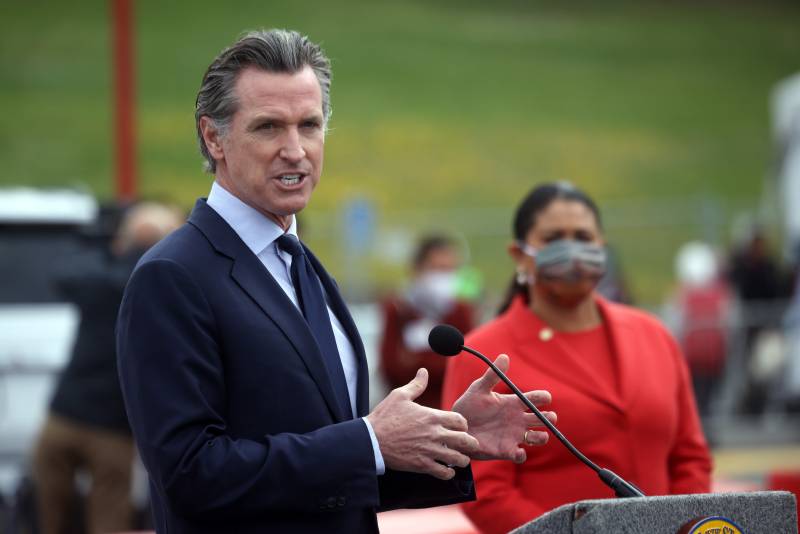At a news conference Tuesday, Newsom touted the combined $15.3 billion committed to homelessness programs in last year’s budget and this proposal. But he expressed frustration that unprecedented levels of funding for housing and homelessness in recent years weren’t yielding better results. When he took office, he said the state invested a mere $500 million.
Despite this new funding, homelessness across California increased more than 23% between 2007 and 2022 (PDF), according to the U.S. Department of Housing and Urban Development, including rising more than 6% between 2020 and 2022.
“More accountability, more transparency,” Newsom said. “There’s never been more resources ever to support these efforts. We want to see things materialize.”
Under the proposal, Newsom said new homelessness-related grants would only be doled out to local governments that comply with state housing law. The administration also wants to push for new legislation that would force local leaders applying for the money to provide greater detail about how they plan to spend it, with priority given to things like clearing encampments.
“People just have had it. They want to see these encampments cleaned up, they’re fed up,” Newsom said. “People want to see results.”
But increased efforts to close encampments will likely be met with resistance. A group of unhoused San Francisco residents sued the city over its sweeps last year, arguing that forced displacements and destruction of property violate their constitutional rights. A judge granted a preliminary injunction barring further sweeps as the case moves forward.
In order to meaningfully reduce homelessness, Matt Schwartz, CEO of the California Housing Partnership, wants to see a dedicated funding source in the vein of the HOPE Act (ACA 14) Assemblymember Buffy Wicks introduced last year, which proposed to dedicate 5% of the state’s general fund each year over the next decade to the state’s affordable housing and homelessness crisis.
“Until we have the state investing at a much bigger scale and a longer-term horizon, we’re not really going to be able to make substantial progress,” Schwartz said.
To address the state’s housing shortage — particularly for people with low incomes — the California Housing Partnership estimates California needs to invest $18 billion each year over the next 10 years to add 1.2 million affordable homes, or roughly 119,000 a year.
The proposed budget maintains current affordable housing production levels, or about 20,000 new affordable homes per year. Abram Diaz, policy director for the Non-Profit Housing Association of Northern California, said that’s an improvement over the past but a long way from enough.
“It should buy us another year of production,” Diaz said. “We had hoped we could go above and beyond that.”
Diaz said he’ll be working to secure more money for the cause as lawmakers hash out the budget over the coming months, before the start of the next fiscal year, on July 1.
“Because if we can’t, and we face another recession and another budget gap in the next fiscal year, then we really might start feeling more of a crunch,” he said.
Acknowledging that a comprehensive funding solution is a ways off, some advocates are beginning to coalesce around a stopgap solution: a statewide affordable housing bond of at least $10 billion on the 2024 ballot. Voters last approved a $4 billion state bond (Proposition 1) for affordable housing in 2018.
Meanwhile, an effort is underway to put forward a constitutional amendment for the 2024 ballot that would reduce the voter threshold for local housing bonds from two-thirds to a simple majority.
Advocates and lawmakers are also looking for new legislative solutions to remove obstacles to building affordable housing and make what money there is stretch further.
“That’s a big part of the solution,” Diaz said, “and something a lot of stakeholders look at very heavily in tough budget years.”

